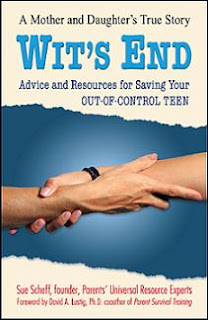
The studies done on teenage pregnancies show staggering results. If you are the parent of a teen or pre-adolescent, it is wise to educate yourself on the current trends regarding pregnancy and sexual activity in order to be informed about what pressures your child might be exposed to. A survey done by [The National Campaign to Prevent Teen and Unplanned Pregnancy(http://www.thenationalcampaign.org/ )], an organization dedicated to reducing the number of unwanted teen pregnancies, reveals that 46.8 percent of all high school students in America had have sexual intercourse at least once. The National Campaign has also reported that close to half of all pregnancies yearly in the United States are unplanned, and that the rate of unwanted or unplanned pregnancies is highest among teens.
When thinking about the causes and consequences of teen sexuality and pregnancy, a parent should consider some additional factors that play into the topic. There are some further outlying trends in terms of teenage sexual behavior that affect a teenÕs decision to participate in sexual activity. How much does the idea of peer pressure actually influence teen sex? Where are teens experiencing their first sexual encounter? What are the tendencies among age groups- that is, are teens in relationships with older partners more likely to engage in sexual behavior than those who are closer in age to their partner? Another issue to bear in mind is that of drugs and alcohol, and how often substances play a part in the choice to have sex. Being prepared in these areas prior to a discussion can help a parent remain open-minded instead of intimidating or harsh.
Pressure to Have Sex
Perhaps because of the media's representation of sex, or the desire to portray a "cool" image to friends and schoolmates, it's no doubt that teenagers today feel the pressure of having sex. The National Campaign to Prevent Teen and Unplanned Pregnancy reports that at least ten percent of teenage girls Òdescribe their first sexual experience as [unwanted (http://www.thenationalcampaign.org/resources/pdf/SS/SS3_YoungAdols.pdf )] Although this may not mean the encounter was completely unwarranted, it means that there was still a level of hesitation and uncertainty on the part of the female. In addition, more younger sexually active teens report wishing they had waited longer to have sex than do older sexually active teens. The fact is, many teenagers submit to the idea of sex merely to assuage the pressure that accompanies not having it.
Birth Control
One of the most detrimental factors to teens is a lack of the use and knowledge of birth control methods available to them. A common thought is that a girl cannot get pregnant the first time she has sex, and she therefore may decide to forego using any type of birth control whatsoever. However, more and more, teenagers are finding out about different contraceptive options and utilizing them. Around two-thirds of teenagers say that they used some type of contraceptive during their very first experience with sexual intercourse.
Differences in Age
One interesting fact is that among teenagers around the age of 14, almost half in relationships report dating someone at least two years older. Teens are often romantically drawn to older people, yet the gaps in age have shown sexual intercourse to happen earlier and more frequently than in relationships where the partners are closer in age. The rate at which teenagers who are two or more years apart have sex almost doubles compared with the rate for those who are the same age. In addition, if the age difference is three or more years, the rate goes up another ten percent.
Substance Abuse as a Factor
For many parents the idea of their teen having sex is enough of a disturbing reality that adding the notion that alcohol or drugs could play a part in the act is too much to take. But turning a blind eye to the possibility could be very hazardous to your relationship with your child and also to his or her safety. Knowing the truth about teens and the affect substances have on judgment can enhance a parentÕs understanding of why teens often choose to have sex earlier than they might be ready to. Not only do drugs and alcohol have the ability to influence teensÕ decisions in a potentially sexual situation, but studies have also shown that teenagers who are sexually active are more likely on the whole to abuse drugs and alcohol. A survey done by The National Campaign to Prevent Teen and Unplanned Pregnancy showed that almost half of sexually active teens used marijuana in the past, while only ten percent of non-sexually active had tried it.
We believe that no matter what a family's views on sex and pregnancy may be, communication between family members early and often about the subject is key to not only a teen's safety but also to a functional relationship between teenagers and their parents. One of the core hindrances in communication is the divergence of opinions about sex and what sex means. As a parent, you probably believe you know what is best for your child, and do not see other options as viable.



















